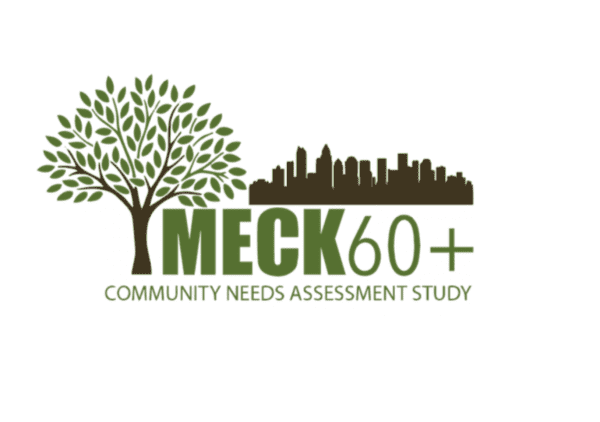Comprehensive Report Offers Guidance on Needs of Area Seniors

What do we know about our neighbors in Mecklenburg County who are over 60 years old? That was the question the Southminster retirement community posed to UNC Charlotte researchers, who with the support of a $200,000 grant from Southminster, set out to answer through the regions’ most comprehensive survey focusing on citizens 60 and older.
Led by Professor Julian Montoro-Rodriguez and a team of scholars, Meck60+ is the first community assessment study in the area that includes data collected firsthand from both seniors and caregivers, focusing on key quality of life domains including: health, community satisfaction, and family caregiving. The study also examined how these domains differ among racial and ethnic lines. The last census (2010) indicated that about ten percent of Mecklenburg County’s population was 65 and over, which amounts to a population of about 100,000, a number expected to increase significantly in the coming years.

“Completing this study is the initial phase of understanding the needs of our seniors, persons with disabilities, and caregivers,” Montoro-Rodriguez said. “It was designed to help us better understand the gaps between the existing and needed services.”
The final report includes specific strategies and action items within each domain. Researchers hope that this information will inform policymakers, professionals, non-profits, those working with older adults, and the community at large to prioritize goals to improve the quality of life for seniors.
“Our goal is to turn the information found from this data collection into innovative new programming, help shape policies, organize resources where needed, and create a strategic plan, that we can measure against, to see the impact we’re making on citizens of the Queen City,” said Ben Gilchrist, Southminster President and CEO.
Among the report’s findings:
Socio-demographics
Older adults replicate the same segregated pattern of Charlotte and the Mecklenburg County populations with a “crescent” of lower standard of living and opportunities for African Americans and Latinos in comparison to Caucasians. The reports authors recommend:
-
Educational opportunities for seniors by offering lifelong learning activities
-
Strengthening family ties and restoring the support network of older adults
-
Programs addressing social isolation and loneliness among older adult
-
Intergenerational mentoring programs and opportunities for people of all ages.
Health
Self-reported physical and mental health data for adults 60 and older in Charlotte and Mecklenburg County show that most adults perceived their health as “good.” However, about one-third of those surveyed experience health challenges with functional health, disability, chronic conditions, mental health and depressive symptoms. The authors recommend:
-
Addressing women and minorities health limitations, disability and chronic health conditions.
-
Enhancing access to health services for uninsured older adults.
-
Developing preventive and corrective behavioral adaptations to promote optimal health.
-
Creating interdisciplinary care teams that include geriatric healthcare professionals.
-
Using person-centered practices to coordinate medical, social & behavioral services.
Community Satisfaction
Participants endorsed an overall positive view of Charlotte and Mecklenburg County as a place to live and retire. However, they were less positive about the level of community support for seniors in the domains of respect and inclusion, social and civic participation, communication and information. Many older adults reported unsatisfactory ratings for “sense of community”, “openness and acceptance towards older adults of diverse backgrounds,” or “respect for older adults,” and expressed dissatisfaction with community safety. The authors recommend:
-
Correcting popular myths and misconceptions and negative stereotypes about older adults while highlighting the importance of positive views.
-
Creating a County Senior Affairs Commission representing seniors across the County to advise and provide information to the Board of County Commissioners and the Division of Aging and Adult Services on matters related to older adults.
The report also details the current state of and provides recommendation on older adults use of community services and the outlook for family caregivers.
Looking forward, the researchers identified five challenges for meeting the needs of the area’s older population.
-
Implement social isolation programs that are theory-based, to promote active participation by older adults, reduce loneliness, improve mental and physical health, and promote social integration for people of all ages.
-
Deliver evidence-based training interventions and educational and informational programs for family caregivers, in particular for dementia caregivers.
-
Increase use of preventive services, in particular mental health services, and remove access barriers to care, insurance coverage, and support for caregivers.
-
Adoption of technology, particularly telehealth to help older adults and support their caregivers to reduce burden, stress, and depression and to preserve quality of life.
-
Support for a research agenda to assess the needs, health and well-being of seniors over time to improve the quality of life of adults in Charlotte and Mecklenburg County.
“I hope this survey and report contributes to shaping policies with regards to deploying resources, overhauling obsolete programs, and establishing new programs to improve the lives of older adults,” Montoro-Rodriguez said.